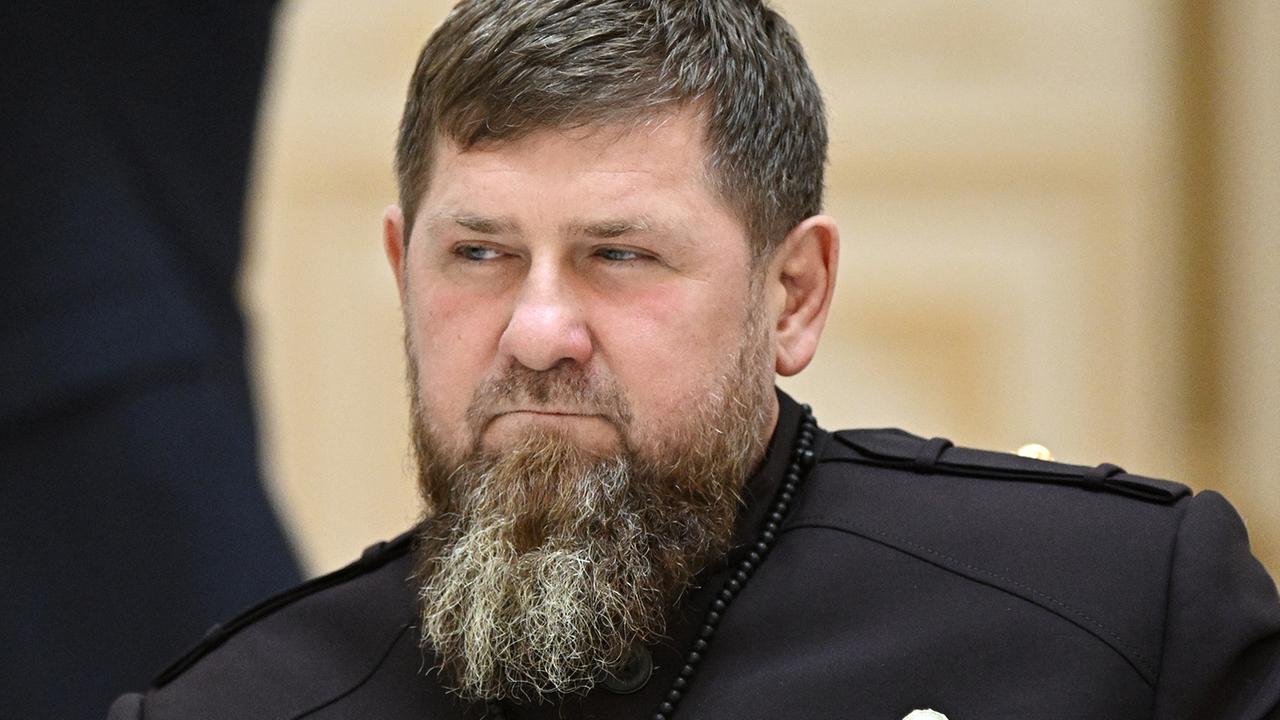Chechnya's ruler threatens Russian MPs with blood revenge. It all started with a businesswoman's marital dispute over a highly successful company. In the end, it's about stability in Russia.
It's about a highly profitable company whose success was only possible in the 21st century – and about a conflict that Chechnya's rulers are fighting using medieval methods.
It began with a marital dispute that initially had nothing to do with Ramzan Kadyrov. However, these are not just any married couple, but rather the richest businesswoman in Russia and her husband, Tatyana and Vladislav Bakalchuk. They are fighting over shares in the online mail order company Wildberries.
Tatjana founded the company in 2004 to sell clothing for mothers and children from the Otto and Quelle catalogs over the Internet. As an IT specialist, Wladislaw contributed his know-how and assets, but only held one percent of the shares.
Over the years, Wildberries grew into the largest Russian online retailer with a wide range of products, with tens of thousands of employees and licensees across the country. The company expanded abroad. It was also present in the EU and the USA until the Russian invasion of Ukraine in 2022. As in previous crises, Wildberries came to terms with the circumstances and expanded its business in Russia; the portfolio now also includes a bank.
Of strategic importance
The success gave Wildberries strategic economic importance, which obviously aroused desire in a country characterized by sanctions and a war economy.
First, a warehouse near St. Petersburg caught fire in January. According to estimates, the damage was more than 170 million euros. According to the investigative medium Agenstvo, Wildberries is said to have operated the warehouse for two years without the necessary permits because there were ambiguities with supervisory certificates. After the fire, law enforcement agencies searched the company's headquarters in Moscow.
Questionable merger
In June, Wildberries surprisingly announced a merger with Russ Group, the largest Russian outdoor advertising agency. According to Tatjana Bakalschuk, this was also carried out on October 1st.
A lot about it seems questionable: market experts doubted the economic sense of the merger. They described it as disadvantageous for Wildberries, as Bakalschuk is said to have only received around 65 percent of the merged company, even though Wildberries had a much larger turnover of 2.6 billion euros than Russ Group with just over 270 million euros.
That was apparently the price Bakalchuk had to pay to escape corrupt law enforcement. She had chosen the right business partners for this: According to renowned Russian media, they are networked in the highest circles. Russ Group is controlled by the brothers Robert and Levan Mirzoyan, who are said to have close ties to the businessman and Federation Council representative from Dagestan, Suleyman Kerimov. He in turn is said to have contact with the head of the presidential administration, Anton Wajno.
With Putin's approval
They are said to have touted the deal to Russian ruler Vladimir Putin: They would then be able to compete with the world's largest online retailers such as Amazon. In addition, a ruble-based payment system and banking network will be set up that can bypass SWIFT.
Putin is said to have instructed his Minister of Economic Development, Maxim Oreshkin, to oversee the merger without directly intervening. In any case, the Kremlin said that Putin supported the merger.
Powerful support for Bakalchuk
However, her husband, Vladislaw Bakalchuk, remained outside. He spoke of a hostile takeover and explained that his wife was being manipulated. She filed for divorce in July and has gone back to using her maiden name, Tatjana Kim.
However, Bakalchuk doesn't want to let his life's work be destroyed, so he looked for equal support – and found it in Ramzan Kadyrov. Chechnya's ruler met with him and publicly repeated Bakalchuk's accusations. He called the owners of Russ Group fraudsters who prevented Tatjana from communicating with her family.
Shooting near the Kremlin
The conflict finally escalated in mid-September. Bakalchuk came with a group of men – many of them Chechens – to the Wildberries headquarters, which is not far from the Kremlin. There was a shootout with company security guards.
Two men were killed; they came from Ingushetia, a republic in the North Caucasus. Thousands of residents attended the funeral in their homeland. Old tensions between Ingush and Chechens found new fuel.
Kadyrov warns
Kadyrov raised the stakes when a video was posted on his Telegram channel on October 9th. In it he threatens Kerimov and Duma deputies from Dagestan and Ingushetia with blood revenge. He accused them of plotting to murder him. At the same time, Kadyrov warned against turning the conflict into an ethnic conflict and “inciting” the situation.
There is much to suggest that he is indeed concerned with tangible economic interests, as shown by the example of the Russian Danone subsidiary, which Kadyrov's nephew took over in July 2023.
Kadyrov is the ruler by Putin's grace and repeatedly shows gestures of devotion. But he only recognizes Putin as leader, while he is in fierce competition with others in the power apparatus. In the North Caucasus, he claims to want to ensure order in the entire region – to the dismay of the leaders of the other republics.
The shooting and talk of the blood feud are now bringing back unpleasant memories for many of the 1990s, when businessmen and criminals used violence to acquire resources. So far it seems that Putin is letting developments take their own course, just as he allowed Wagner boss Yevgeny Prigozhin to do so for a long time. So what began as a dispute between spouses could once again endanger stability in Russia.





